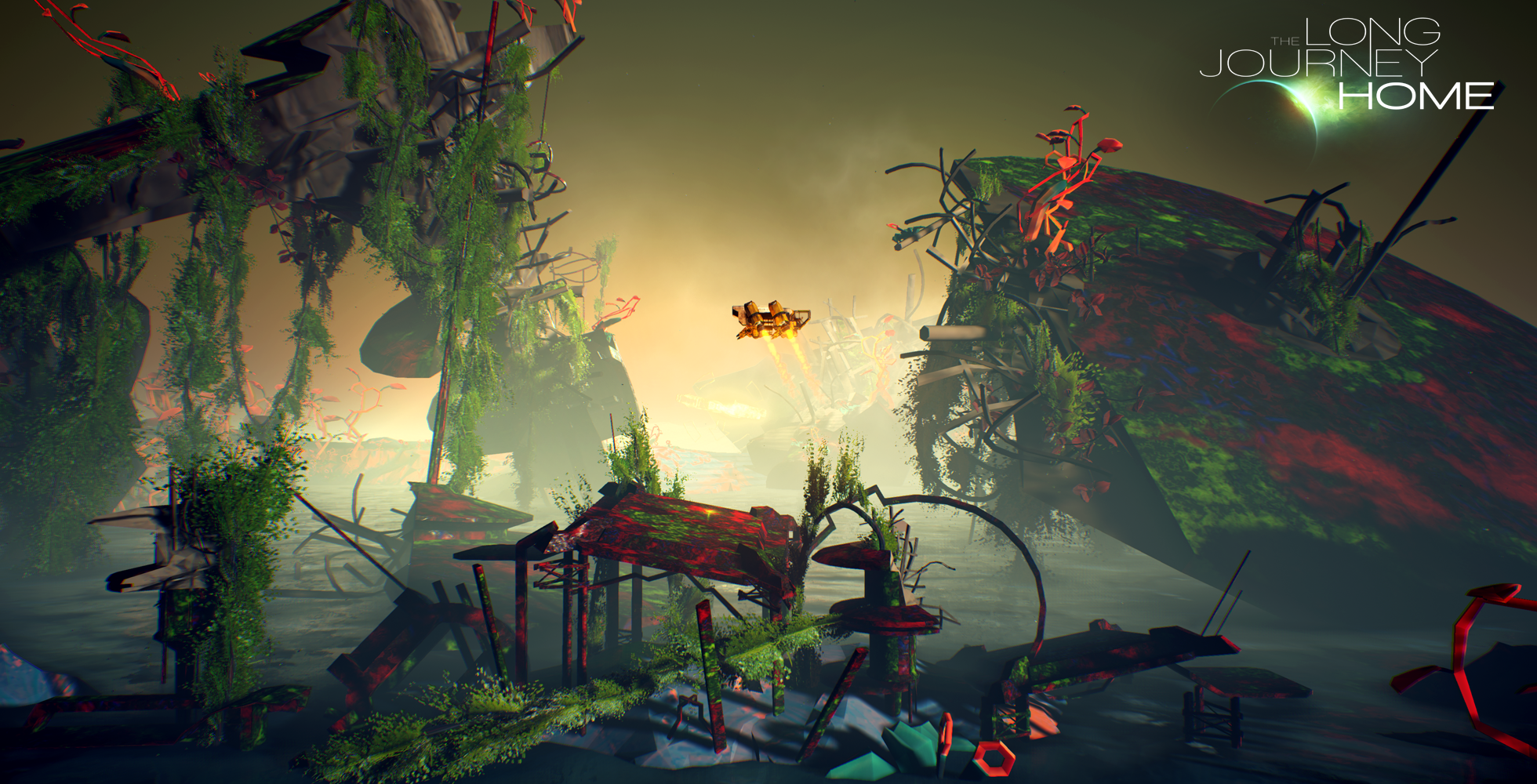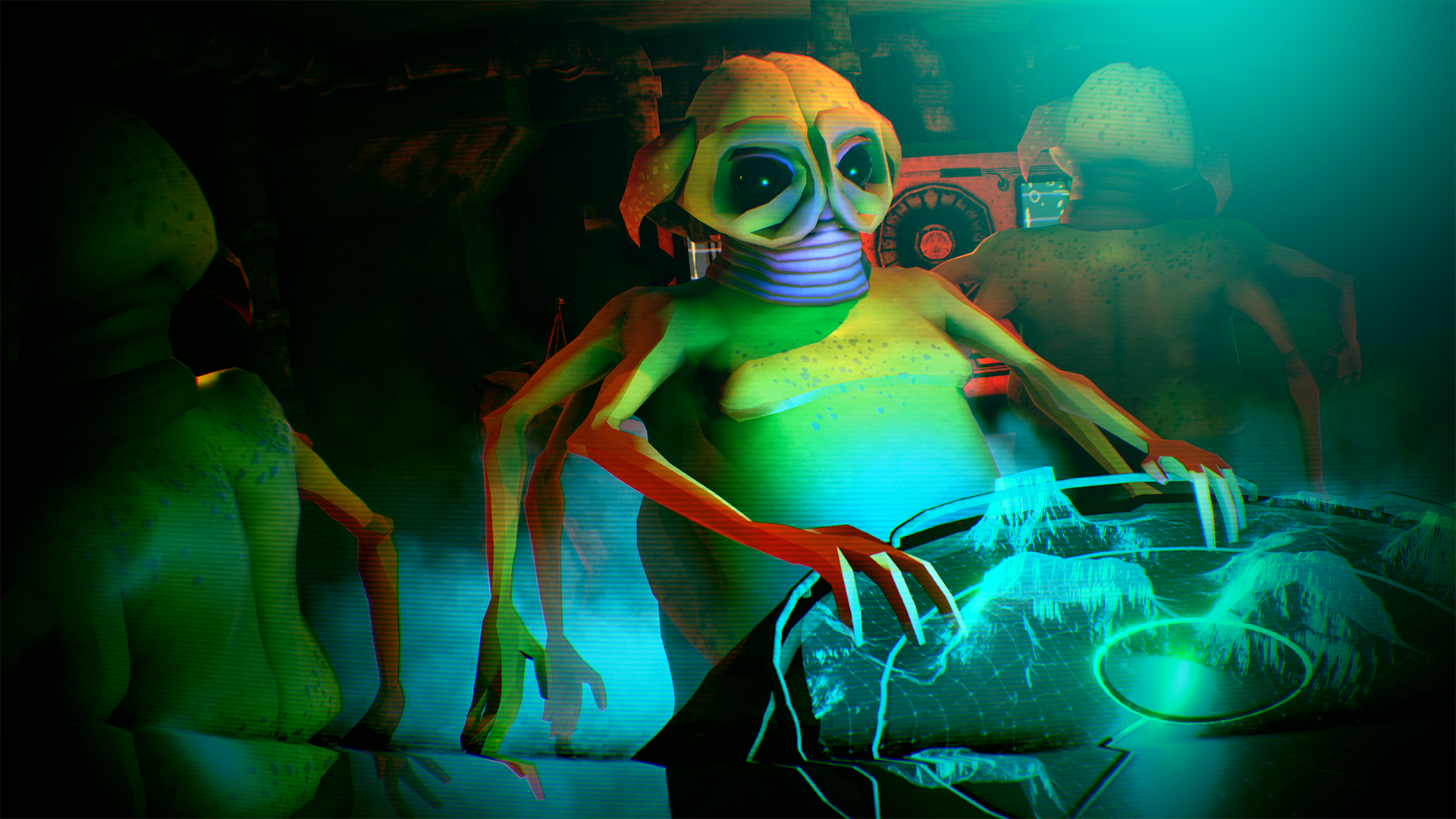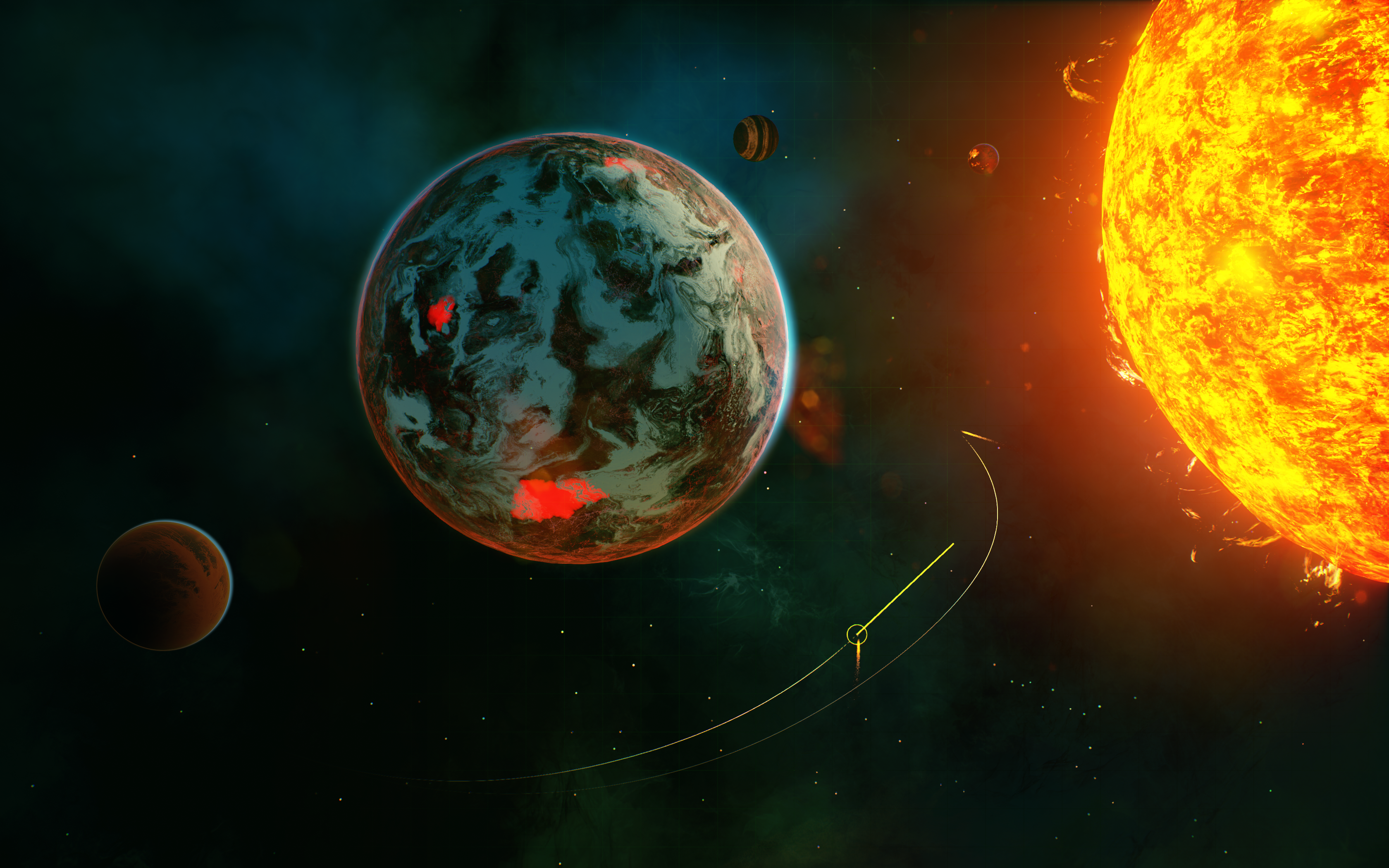You and your four man crew are testing a new interstellar jump drive. You jump… and are suddenly ripped from space by an alien tech leaving you stranded with a busted ship very, very far from home. You and your crew must traverse a massive galaxy to return home safely with the mix of skills you have on hand. This is the basic premise of The Long Journey Home, but beneath that premise is a game with immense scope and feature breadth. The Long Journey Home while likely be as challenging for the dev team as it is a promising delight for players.
The Long Journey Home is graphically beautiful game with a genre blending beyond normal levels. TLJH includes roguelike gameplay, a procedurally generated universe, planet exploration, crew skills, alien diplomacy, and a gravity well mini-game including space battles.
If you think that list is long, I’m not even sure I covered it all. That being said, the game I saw included all of these elements to some level already and the game is still in Alpha. Daedalic Studio West may have their work cut out for them to round out each of these features, but they are off to a fine start. There truly is a lot of gameplay ground to cover here so let’s cover them one by one.
Roguelike(ish)
TLJH home is in many ways a roguelike. You must explore a universe of multiple galaxies that you really don’t know completely, and given the story situation, you could never know completely. This gameplay style fits the game scenario very well. However, the game is not meant to be punishing or random as many roguelikes are.
Procedurally Generated Universe
No two gameplays are the same, but the seed for each is available if you choose to share with a friend or want to replay a version of the world. Procedural generation introduces an aspect to the roguelike where the world’s pieces may be mixed up from gameplay to gameplay, but it also reduces the absolute reliance on RNG mechanics. This is tunable, not random. In addition, though the universe planets and elements are being mixed together in new ways by the algorithm, certain elements such as racial traits and likes and dislikes persist from session to session.
Crew Skills & Landing
Currently there are 8 crew members available to make your active four person crew. Each have certain skills that can help. Some are engineers, some are linguists, some are combat oriented, etc. The mix of skills you choose will provide certain advantages, but the four person crew limit will mean that sacrifices must be made.
Alien Races & Diplomacy
Inhabiting this vast unknown set of galaxies between yourself and home are a myriad of races. Some are honorable, others not so much, some peaceful, some warlike. Though you may meet them in new places, certain elements stay the same. In your first playthrough you can make major blunders in your interaction, but at least this element is predictable between sessions. To me, this mechanic feels like acquiring the knowledge that your civilization already has about alien races, but as the player you acquire it over time from session to session.
This plays heavily into the language boundaries. The aliens only sort of understand you. This is akin to a Japanese person meeting an Italian person on the streets of Berlin with no common language among them and only a few words they sort of understand. When asking about home, for instance, the aliens may think you are referring to your own home, or may think you are inquiring about theirs.
Your relationship with these races can be complicated and may effect how other races see you, whether you have access to ways to move around the galaxy, or things as simple as how helpful they are.
Space Battles and Gravity Wells
As you move through the galaxy there is a bit of a minigame where gravity wells can be used to gain speed or traverse the galaxy while preserving fuel. This is where you can engage in space battles. The space battles are generally naval including broadsides and energy and speed management.
Summary
The most interesting thread of gameplay I found was the mix of procedural generation with known elements. The game is meant to be completed. This isn’t a punishing rogue like where suddenly everything goes to hell and you just die, but in each playthrough you may have no idea that a certain race hates certain items or they may lie to you. An ambassador you rescue may really be a con artist. In your next playthrough you will encounter different items in a different place, at a different time, but each race’s general disposition will be known to you. The ability to build on some knowledge, while still having a different game sequence is critical, in my opinion, to a game that can be mastered instead of just experienced.
The Long Journey Home has a great deal of promise and is one to keep on your radar as it progresses. The Long Journey Home is on Steam in early access and is slated for a Q4 release.











Published: Apr 26, 2016 10:45 am